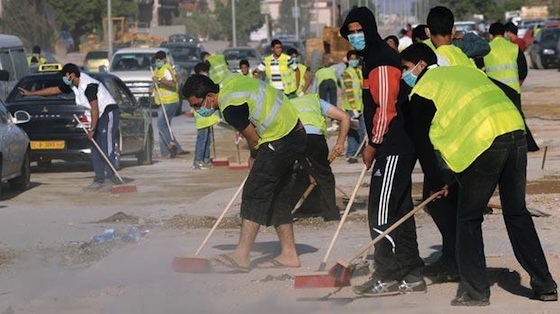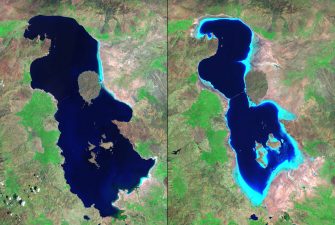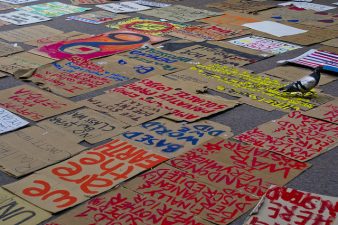 Clear Libyan streets of trash and traffic for a brighter and more democratic future says expert
Clear Libyan streets of trash and traffic for a brighter and more democratic future says expert
Security concerns in Libya may be top of the political agenda, but more goodwill could be earned if socio-economic problems such as traffic and trash are tackled says Rhiannon Smith, who is an economic development expert in Libya. Post-revolution, Libya is struggling with pressing security concerns, disunity and division along religious and ethnic lines. As such, political progress away from a long authoritarian past to a more democratic future has been painfully slow. The solution is tackling problems that all Libyans face and there isn’t more that unites Libyans in despair than the traffic and trash problem.
These “are issues that could be actively addressed with minimal controversy and relatively little effort which would not only improve living standards across the country, but also lay the groundwork for the psychological transition from authoritarianism to democracy,” writes Smith in OpenDemocracy.
With petrol cheaper than mineral water and a threadbare public transport infrastructure, the streets of Libya are congested and dangerous. A hike in petrol prices and greater enforcement of traffic rules is one quick solution whilst the public infrastructure is built up. As well as cutting back the congestion, the traffic law enforcement could be the “first step towards re-establishing rule of law in post-Gaddafi Libya.”
Another major issue facing Libyans is trash. On the streets, in the alleyways, in parks and schools, it’s clear that the country has a chronic litter problem. The main reason behind this is the absence of an organised, well-funded rubbish collection service and a general acceptance of littering. Smith argues that a massive overhaul is needed in the long-run but for now, a bigger workforce and modern collection vehicles would be a step in the right direction.
“Not only would the environment be cleaner and healthier, removing the litter could help kindle Libya’s fledgling tourism industry,” adds Smith. “Perhaps more importantly, cleaning the streets will show that the government is doing its job and might encourage people to consider the consequences of throwing their rubbish on the streets.”
It turns out that what’s good for the planet is also good for democracy – and there is nowhere that could benefit from more democracy and environmental action than the Arab world.
:: Image of Libyan children cleaning the streets via Times of Malta.
For more on Libya see:
Was The Arab Spring Good for Renewable Energy?
Libyan Artist Turns Weapons of War Into Sculptures
MENA is Changing Drastically & NASA Has The Pictures To Prove It




Any male-dominated population anywhere in the World will continue to grow and produce more waste materials than the environment can absorb, resulting in disease and death to a growing number of people. Thus, while liberating women by giving them the right to decide if and when to concieve and birth their children, thus reducing the population, it is necessary to safely recycle 100% of trash, garbage, junk, smoke and fumes. If not we all face ecocide and extinction in our lifetime.